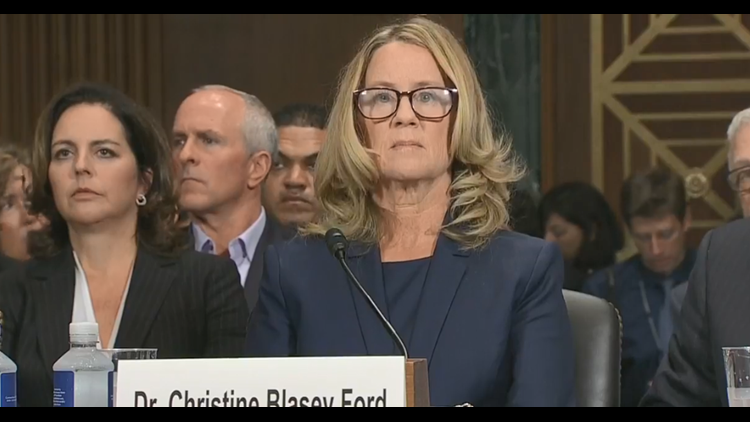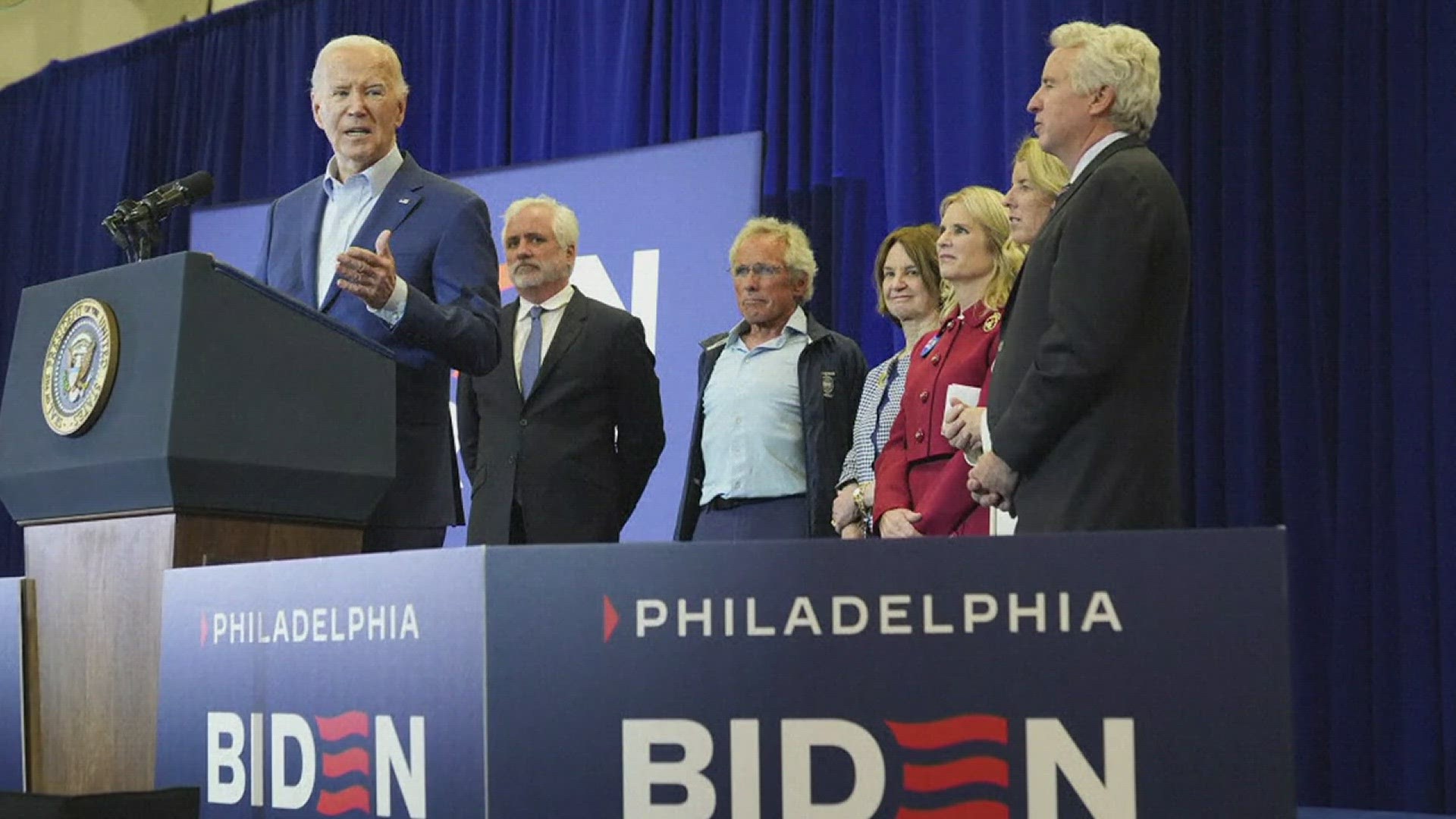(CNN) — Thirty-three minutes after the hearing into her accusations of sexual assault against Supreme Court nominee Brett Kavanaugh began, Christine Blasey Ford stood, took an oath and started to tell her story.
What followed will steer the fate of Kavanaugh’s nomination, Ford’s own life, and surely weigh on the political futures of perhaps dozens of political leaders and elected officials at the highest levels of government — in particular Republicans who have defended Kavanaugh in the face of Ford’s allegations.
After more than four hours, here are the six moments that will shape Americans’ memory of the historic hearing.
Partisan bickering before Ford speaks
Before the witness could speak a word, Senate Judiciary Chairman Chuck Grassley, an Iowa Republican, and its ranking member, California Democratic Sen. Dianne Feinstein, reprised their public debate over the process that led to the hearing.
Grassley began by lashing out at Feinstein and Democrats for not making Ford’s private letter public sooner and defended the lack of an FBI probe into the allegations.
“Contrary to what the public has been led to believe” Grassley said, “the FBI doesn’t perform any credibility assessments or verify the truth of any events in these background investigations.”
Feinstein returned volley, first noting that Grassley had not yet — after all he’d said — introduced Ford, then assailed Republicans for calling the accusations and resulting firestorm a “hiccup,” as Nevada Sen. Dean Heller did, and suggesting, like Utah Sen. Orrin Hatch had, that Ford was “mixed up” over what happened.
“What’s worse, many of our colleagues on the other side of the aisle have also made it clear that no matter what happens today, the Senate will plow right through,” Feinstein said, alluding to a remark by Senate Majority Leader Mitch McConnell, “and ensure Judge Kavanaugh would be elevated within a week.”
Ford’s describes alleged assault in dramatic opening statement
Ford, who had never spoke in a similar setting before, began deliberately and mostly stuck to her written statement, setting out in some detail her allegations against Kavanaugh.
“I am here today not because I want to be,” she said early on, her voice trembling at times. “I am terrified. I am here because I believe it is my civic duty to tell you what happened to me while Brett Kavanaugh and I were in high school.”
Kavanaugh and his friend, Mark Judge, she said, had locked her in a bedroom before Kavanaugh “got on top” of her.
“He began running his hands over my body and grinding his hips into me. I yelled, hoping someone downstairs might hear me, and tried to get away from him, but his weight was heavy,” Ford said. “Brett groped me and tried to take off my clothes. He had a hard time because he was so drunk, and because I was wearing a one-piece bathing suit under my clothes.”
As she spoke, supporters, staffers and at least one senator, Minnesota Democrat Amy Klobuchar, could be seen wiping away tears.
“I believed he was going to rape me,” Ford said, testifying that with Kavanaugh’s hand over her mouth during the alleged attack, “it was hard for me to breathe and I thought that Brett was accidentally going to kill me.”
Ford mixes emotion with science in discussing her memory — and ‘the uproarious laughter’
Feinstein channeled many of Ford’s critics and questioned how, so many years later, she could be sure that Kavanaugh committed the attempted assault.
“The same way that I’m sure I’m talking to you right now,” Ford said, “just basic memory functions.”
Later on, Vermont Democratic Sen. Pat Leahy, who had sat on the same Judiciary panel during the Anita Hill hearing, asked about Ford’s most enduring memory of the incident.
Her answer to Leahy’s question was both emotional and scientific: “Indelible in the hippocampus is the laughter,” Ford said, “the uproarious laughter between the two and their having fun at my expense.”
Leahy pressed on and Ford explained her experience in stark terms: “I was underneath (Kavanaugh), while the two laughed. Two friends having a really good time with one another.”
When it was Klobuchar’s turn, she too asked Ford to share her most acute memories.
“The stairwell,” Ford said, ticking off the scene around her, “the living room, the bedroom, the bed on the right side of the room — as you walk into the room, there was a bed to the right — the bathroom in close proximity, the laughter, the uproarious laughter, and the multiple attempts to escape and the final ability to do so.”
‘100 percent’
Illinois Sen. Dick Durbin, a Democrat, reacted to a report late Wednesday that GOP committee members had spoken to a pair of men who each, separately, came forward to claim that they — not Kavanaugh — had assaulted Ford.
“The Republican staff of this committee released to the media a timeline that shows that they’ve interviewed two people who claim they were the ones who actually assaulted you,” Durbin said. “I’m asking you to address this new defense of mistaken identity directly. Dr. Ford, with what degree of certainty do you believe Brett Kavanaugh assaulted you?
Ford leaned into her microphone and answered: “100 percent.”
Mitchell’s plane question — and Trump Jr.’s tweet
Drafted in from Arizona, Rachel Mitchell was prodding at times over particulars. At one point she asked Ford how she got from California to Capitol Hill.
“In an airplane,” Ford replied.
Ford has reportedly described to friends and family that, as a result of the attack, she struggles with being stuck in enclosed spaces. Whether Mitchell was seeking to undermine or cast doubt on that claim was unclear.
During the hearing, Donald Trump Jr. in a tweet made the argument more bluntly.
“I’m no psychology professor but it does seem weird to me that someone could have a selective fear of flying,” the President’s son wrote. “Can’t do it to testify but for vacation, well it’s not a problem at all.”
After an awkward pause, Mitchell explained the line of questioning: “I ask that because it’s been reported by the press that you would not submit to an interview with the committee because of your fear of flying,” she said. “Is that true?”
Ford said she was “willing” but also hoping that the committee or a representative “would come to me, but then I realized that was an unrealistic request.”
Who paid for the polygraph?
Mitchell repeatedly inquired around who paid for the polygraph test Ford took before her story became public.
Ford said, more than once, that she was not sure who covered the cost. When asked again after a lunch break, her counsel interrupted.
“Let me put an end to this mystery,” Ford lawyer Debra Katz said, “her lawyers have paid for her polygraph.”
“As is routine,” interjected the other, Michael Bromwich. Katz then leaned in again to say the same.
Mitchell continued: “Dr. Ford, do you expect the price of that polygraph to be passed on to you?”
Ford said she was not yet sure, that she had not — in the tumult of the past few days and weeks — “taken a look at the costs involved in this.”
Both lawyers said they had taken on Ford’s case pro bono, and had no expectation of being paid themselves.



